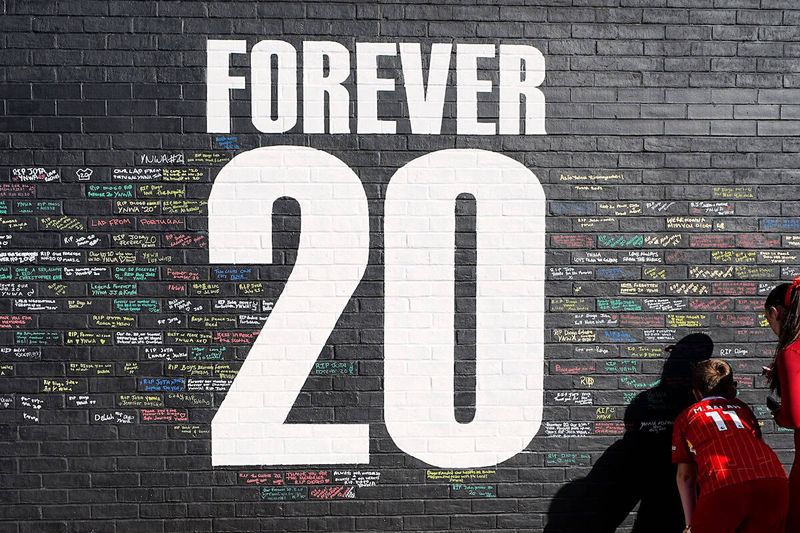
In football, shirt numbers are so much more than just a way to tell players apart on the pitch. They carry with them a history, an identity… and emotion. For lots of footballing fans, there are numbers that will forever be linked with one player and their entire legacy. And, while the concept of retiring a shirt number has generally been more common in American sports in the past, there are a few football clubs that have taken the step, usually as the ultimate tribute to a player whose story came to an end way too soon.
And the recent tragic passing of Portuguese stars Diogo Jota and André Silva has obviously stirred up conversations about whether it’s right for their respective clubs to retire their numbers to honour these two incredible players. These two truly beloved forwards, who managed to bring their own flair and fight to every single match they played in, left a mark on everyone… fans, teammates and football lovers all over the world.
Diogo Jota was a remarkable player, netting 65 goals and helping his team win the Premier League, FA Cup, 2 EFL trophies and being a key player who always kept them favourites for anyone betting on Champions League winners. He also earned 49 caps for Portugal and helped his national team win the UEFA Nations League. And, of course, his brother Andre Silva was also a talent, playing for Portuguese second-tier team FC Penafiel, who will also be deeply missed by club and country. But more than that, they were beloved by their friends and families, for whom it cuts even deeper.
Tributes have poured in from all over the world, even those not interested in football… and it’s clear that Jota and Silva’s memory and impact won’t fade easily.
A Rare Honour in Football
While it’s not common in basketball or ice hockey to see a retired number hanging in arenas, football doesn’t do it quite so often. One reason is practical: squad numbers have to be reused over decades. However, exceptions have been made when tragedy strikes or when a player has an influence that’s just too big to overlook.
The Most Notable Examples
Take AC Milan as an example. The Italian giants famously retired the number 3 shirt to honour the legendary Paolo Maldini, who gave 25 years of his life to the club. Similarly, Napoli retired the number 10 for Diego Maradona… an icon who didn’t just lift trophies but managed to lift the entire city when he played there.
In England, Manchester City retired Marc-Vivien Foé’s number 23 when he suddenly passed away on the pitch during an international match. Although City has since reissued the number, at the time it was a sign of the respect the club had for the Cameroonian midfielder.
Another example is Fiorentina, who retired the number 13 in honour of Davide Astori, their captain, who tragically passed away in 2018.
Should Clubs Do It More?
So should more clubs do it? Well, there are arguments on both sides. Some fans say football’s traditions should be preserved, and shirt numbers should be kept alive to inspire the next generation. Then there are others who think that in moments of tragedy and loss, retiring a number is the perfect way to let the world see that they were irreplaceable.
For Liverpool fans, Jota’s number 20 will now be forever linked to the player who had the ability to create goals when needed the most. And Liverpool has responded by confirming they will be retiring Jota’s No 20 shirt – the first time the team has ever taken such a step.
More Than a Symbol
Sadly, retiring a shirt number can’t bring a player back, but it does give fans and future players a way to remember and respect them – and remind us that there are some legacies that can’t be replaced.
While there are clubs that may still hesitate to retire numbers, there’s an emotional weight behind the idea that will always resonate, especially in the most tragic circumstances. For players like Jota and Silva, who had so much potential, retiring a number isn’t just about looking back; it’s about showing the world that they mattered far beyond goals and assists.








